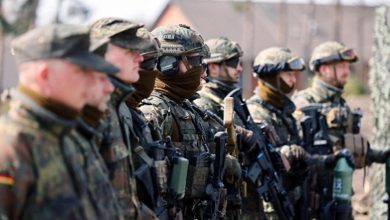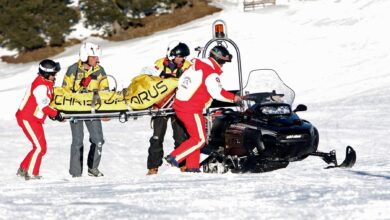
US President Biden is today advising NATO, the G7 and the EU on the Ukraine war. In addition to stricter sanctions and the strengthening of NATO’s eastern flank, it is also about the symbolism: the USA on Europe’s side.
The coming hours in Brussels could be decisive for the West’s strategy. The United States and its allies want to discuss what to do next against the Russian invasion of Ukraine.
President Biden will coordinate further military support for Ukraine with his partners in Brussels, US National Security Advisor Jack Sullivan promised at a press conference. The US President landed in the Belgian capital yesterday evening. “He will work with allies to enact further sanctions against Russia and increase existing penalties to deter attempts to circumvent sanctions,” Sullivan said.
Within twelve hours, Biden wants to take part in the special summit of the countries of the North Atlantic Defense Alliance (NATO), in a meeting of the G7 countries and with the heads of state and government of the European Union. Sanctions are always an issue because the US government sets limits in the confrontation with the nuclear power Russia. The administration considers its own options to be limited. The West has ruled out a no-fly zone, NATO troops in Ukraine and MiG fighter jets for Kyiv.
Reinforcement of NATO’s eastern border
Instead, anti-aircraft and anti-tank missiles would be delivered, says Charles Kupchan in a video chat. Kupchan is a lecturer and works at the Council on Foreign Relations in Washington D.C. “A lot of weapons are brought into Ukraine from Poland and Romania. I suspect that they also come from other sources,” said Kupchan. “But what follows then? Another issue is reinforcements along the eastern border of NATO territory.”
It is about military deterrence against Russia. Washington wants to use additional troops to prevent the Russian war in Ukraine from affecting other countries, including NATO countries. In the future, four battlegroups are to be relocated to Slovakia, Hungary, Romania and Bulgaria, NATO had declared.
Common position on the use of chemical weapons
Security adviser Sullivan said there were also fundamental considerations: “The second question is how NATO will position itself in the long term. The President will discuss this with the allies.” That means the allies have to clarify whether the North Atlantic Defense Alliance is keeping to its promises when it comes to upper limits for the number of permanently stationed soldiers in Eastern Europe.
The US is also striving for a common stance should Russian President Putin use non-conventional, i.e. chemical, weapons in Ukraine.
Biden: No ban on oil imports
At the meeting with the European Council, raw material imports from Russia could once again be an issue. Europe is dependent on the supplies, especially countries like Germany and Hungary. The Biden government does not want to build up any pressure, it is said publicly: “We can ban the import of Russian oil, gas and coal. And we can compensate for it,” said Sullivan. “But the President has also made it clear that some of our European partners cannot implement this and that he will not force them.”
Above all, however, the visit of the US President to Brussels is also a symbol: the USA on Europe’s side. And trying to keep the current great unity. “What we must not lose sight of: The challenges we faced before the Russian invasion of Ukraine have not disappeared,” explains expert Kupchan. “There will be elections in the USA at the end of the year. Biden could lose the majority in Congress. And in Europe, the debate about people fleeing will be the focus again.” Domestic political controversies are only superimposed in all countries. In his opinion, they could start again. With consequences for the entire alliance.


